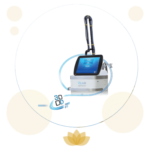
Food can profoundly affect the brain and mental health of your body, just like drugs prescribed by a doctor. Your gut and brain are constantly communicating with each other.
One patient was confuse about why I treated her mind while talking about her stomach. It seemed irrelevant to her. She said: “After all, they’re not actually right next to each other.”
Although your brain and gut are located in different parts, they are still physically connected.
The vagus neural is also known as the “wanderer” nerve. It originates from the brain stem and travels to the gut. This nerve connects the heart with the central nervous system. The vagus nerve, or the “wanderer nerve,” originates in the brain stem and travels to the gut. It connects the central nervous system with the heart.
The vagus nerve is vital to digestion because it penetrates the gut wall. But its main function is that it ensures that nerve signals and chemicals can travel between the gut and brain and carry vital information.
The Gut-Brain Romance
Chemicals are the basis for all body communication. In the brain, these chemicals originate from the primary parts of your nervous system (with an assist from your endocrine system): the central nervous system, which comprises the brain and spinal cord; the autonomic nervous system (ANS), which includes the sympathetic and parasympathetic systems; and the hypothalamic-pituitary-adrenal axis (HPA axis), which comprises the hypothalamus, pituitary gland, and adrenal gland. The central nervous system produces chemicals such as serotonin and dopamine. These chemicals are crucial for processing thoughts and emotions and regulating mood. Serotonin is a chemical deficient in depressed or anxious people’s brains. It plays a significant role in the regulation of the gut-brain connection. Serotonin, a brain chemical that is highly talked about because it affects mood and emotions, has more than 90% serotonin receptors in the gut. All these brain chemicals work together to ensure that the brain and gut work smoothly in a healthy person. As with all delicate systems, things can always go wrong. The gut-brain connection is disrupted when chemical production levels are too high or low. The stories of important chemicals are out of balance. The mood is disturbed. Concentration becomes disrupted. Immunity is affected. The gut’s barrier to protect the brain is compromised. Chemicals and metabolites that are supposed to stay out of the brain can reach the brain, causing havoc.Food can affect your brain just as much as drugs.
This chemical chaos can cause psychiatric disorders, ranging from depression to anxiety and loss of libido. It may also lead to more severe conditions like schizophrenia and bipolar disorder. You might think that we’d need to use a barrage of sophisticated pharmaceuticals to correct these chemical imbalances and restore order to the brain and body. You’d be correct to some extent! The majority of drugs that are use to treat mental disorders do alter these chemicals to restore the brain to a healthier state. For example, selective serotonin reuptake inhibitors (SSRIs) boost serotonin levels to combat depression. Modern mental health medication can a lifesaver, and its importance in therapy is not understated. However, what is often lost in discussions of mental healthcare is the simple truth that food can have as profound an effect on your mind as drugs.The Gut Microbiome
A large collection of microorganisms in the intestine is responsible for the romance between the gut and the brain. Humans and animals have a gut microbiome, a type of relationship where both parties depend on each other to survive. In exchange for providing bacteria with a home to thrive and live in, our guts perform vital tasks that we can’t do alone. The microbiome is compose of many types of bacteria. In the gut, there are more species than anywhere else. A person’s microbiome can consist of up to 1,000 different bacteria species. However, the majority of these bacteria belong to just two groups: Firmicutes and Bacteroides. These two groups make up 75% of all microbiomes. It is relatively recent in medicine to recognize that bacteria can influence brain function. Over the years, science has shown that gut bacteria affect mental function. Functional bowel diseases, such as irritable bowel syndrome or inflammatory bowel disorder, can cause mood changes due to altered bacterial populations. Probiotics can help lower anxiety and depression. If you put the gut bacteria from schizophrenic people into the stomachs of mice, they also begin to exhibit symptoms of schizophrenia. Normal gut bacteria are essential for producing neurotransmitters like dopamine, glutamate, and gamma-aminobutyric (GABA), which are crucial to mood regulation, memory, and attention. The right balance of bacteria in your gut is essential for the brain to produce the chemicals that it needs to remain stable and healthy. Your brain must be tough and in good health for the gut to maintain the right balance of bacteria. This cyclical relationship can disrupted and cause problems for the brain and the heart. A healthy gut microbiome can lead to a healthy brain and vice versa.What Food Influences Brain Function
Food affects your brain both directly and indirectly. The microbiota breaks down food into fermented, digested, and GABA-containing materials. These components travel to the brain, changing how we feel and think. Some foods encourage the growth of beneficial bacteria, while others inhibit it. Food is a powerful mental health medicine because of this effect. Dietary interventions can achieve similar results as pharmaceuticals with little or no side effects. Nutritional psychiatry is based on the idea that food can used as medicine to treat mental illness. This approach to mental health issues will help us find lasting and meaningful solutions. Nutritional psychiatry is based on the idea that food can used as medicine to treat mental illness. This approach to mental health issues will help us find lasting and meaningful solutions. We are slowly but surely moving towards a time when health care will no longer rely on prescriptions and one type of therapy. We are now beginning to discuss the importance of food in mental health. This doesn’t remove the importance of working closely with your doctor. Medication and appropriate therapy are still important in improving mental health. Better diets can be helpful, but they are only part of the treatment. The relationship between food, mood, and anxiety continues to gain attention. A proverb says the stomach is the gateway to a man’s heart. With a slight modification, we may have discovered a great truth: The food that goes into our stomachs can change our brains and warm our hearts.Five Good Mood Foods You Can Add To Your Menu
-
Prebiotics and Probiotics
Enjoy this delicious meal.
Probiotics. Probiotics. Prebiotics. Beans, other legumes (including oats), bananas, berries, dandelion leaves, garlic, onions, and leeks.- Good Mood Vitamins in Foods
Enjoy this delicious meal.
You can find folate and B12 in citrus fruits, avocados, and bananas. Also, you will find them in leafy greens like crucifers, lettuce, and beets. Vitamins A1 and B6 are found in foods containing folate and B12 and whole grains and soybeans. Vitamins A are found in sweet potatoes and carrots. Vitamin C is found in oranges, strawberries, broccoli, and cauliflower.- Iron-rich foods and mood minerals
Enjoy this delicious meal.
Foods are rich in iron—lean meats, organ meats, eggs, lentils, pumpkin seeds, and spinach. Magnesium-rich foods. Avocados and bananas. Nuts and seeds. Whole grains. Fish high in omega-3 fatty acids (such as mackerel and salmon). Zinc-rich foods. Seafood, lean beef, and poultry.- Omega-3 Fatty Acids-Rich Foods
Enjoy this delicious meal.
Coldwater fatty fish, such as tuna, salmon, herring, mackerel, and sardines, contain large amounts of Omega-3s. Bass and trout, which are smaller fish, are also good sources. Grass-fed beef contains a higher level of omega-3s than conventional meat. ALA Sources include edamame and walnuts. Omega-3 fortified food is available on the market.- Herbs and Spices







